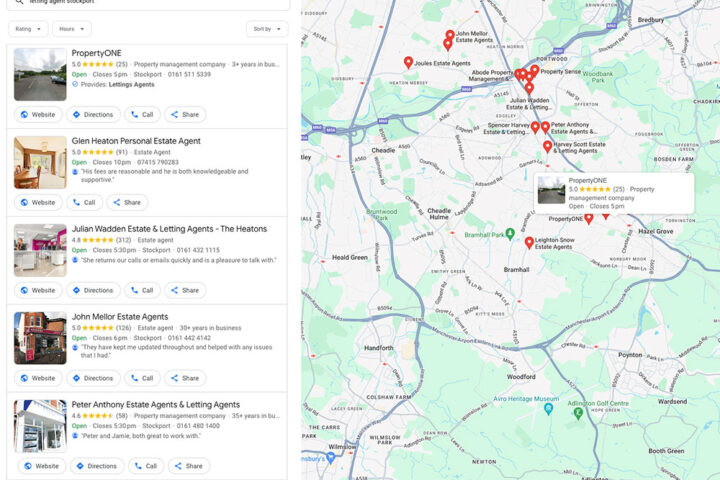A beginner’s guide to Search Engine Optimisation
Search Engine Optimisation (SEO) is one of the most crucial elements for driving traffic to your website and ensuring its visibility in search engine results. Whether you're running a personal blog, a small business website, or an e-commerce platform, understanding the basics of SEO can significantly impact your online success.
Here’s a beginner-friendly guide to help you grasp the essentials of SEO and start optimising your website today.
What is SEO?
SEO stands for Search Engine Optimisation. It refers to the strategies and techniques used to improve a website’s ranking on search engine results pages (SERPs) like Google, Bing, and Yahoo.
The goal of SEO is simple: to make your website more discoverable to people searching for the products, services, or information you offer.
How search engines work
Before diving into SEO tactics, it’s essential to understand how search engines work.
Crawling: Search engines use bots (or spiders) to scan the web and discover new content.
Indexing: Once content is discovered, it’s added to a massive database, or “index,” where it’s organised and stored.
Ranking: When a user performs a search, the search engine analyses its index and delivers the most relevant results based on factors like keywords, content quality, and website authority.
The core components of SEO
Keyword Research
Keywords are the foundation of SEO. They’re the words and phrases people type into search engines to find information.
To help you find the keywords and phrases that your visitors are using to find your website you can use tools like Google Keyword Planner, SEMrush, or Ahrefs to identify relevant keywords for your niche. These are tools that web agencies tend to use, but you can also simply type phrases into Google and see what comes back. Often Google will suggest phrases and tell you what phrases others are using which is a good barometer of the kinds of keywords you should be optimising for.
It's important to focus on intent when compiling keywords - does the keyword indicate informational, navigational, or transactional intent? For example an informational keyword might be "How to bake a cake", a navigational keyword would be "Nike official website", and a transactional keyword would be "Buy running shoes online".
On-Page SEO
On-page SEO involves optimising individual pages to rank higher.
Key elements of a page
Title tag: Include your primary keyword and keep it under 60 characters.
Meta description: Summarise the page content with keywords in 155–160 characters.
Headings: Use H1, H2, and H3 tags to structure your content.
Content quality: Write engaging, informative, and original content that solves visitors’ problems.
Internal links: Link to other pages on your website to guide users and improve crawlability.
URL structure: Use clean, keyword-rich URLs.
Technical SEO
This aspect ensures that search engines can easily crawl and index your website.
Key elements of technical SEO
Mobile-friendliness: Use responsive design to ensure your site works well on all devices.
Page speed: Optimise images, use caching, and minimise code to improve load times.
Secure website: Implement HTTPS for secure browsing.
XML sitemap: Submit a sitemap to search engines for easier indexing.
Fix any broken links: Check and repair any 404 errors or broken links.
Off-page SEO
Off-page SEO focuses on activities outside your website to improve its authority.
Backlinks: Links from other websites to yours act as a vote of confidence. Focus on earning high-quality backlinks from reputable sources.
Social signals: Shares, likes, and engagement on social media platforms can indirectly boost your site’s visibility.
Local SEO
If you’re a local business, optimising for local searches is essential.
Google My Business: Claim and optimise your profile with accurate business information.
Local keywords: Use terms like "near me" or your city name in your content.
NAP consistency: Ensure your Name, Address, and Phone number are consistent across all platforms.
SEO Best Practices
1. Focus on the user experience (UX). Search engines prioritise websites that provide a positive user experience. Make sure your site is easy to navigate, visually appealing, and accessible on all devices.
2. Publish high-quality content. "Content is king" in SEO. Regularly publish blogs, videos, or guides that offer value to your audience. Aim for content that answers questions, solves problems, or entertains.
3. Monitor and adjust. SEO is an ongoing process. Use tools like Google Analytics and Google Search Console to track your performance and identify areas for improvement.
4. Avoid 'black hat' techniques. The term 'black hat' originates from 1950s westerns, where the 'baddies' were typically depicted wearing black hats and the 'goodies' white hats! Stay away from 'black hat' practices like keyword stuffing, buying backlinks, or creating duplicate content. These can result in penalties and harm your rankings.
Essential SEO Tools
Here are some tools to help you get started with SEO:
Google Analytics: Track traffic, user behaviour, and conversions.
Google Search Console: Monitor your website’s presence in search results and fix issues.
SEMrush: Conduct keyword research, track rankings, and analyse competitors.
Yoast SEO (for WordPress): Optimise on-page SEO elements.
How long does SEO take?
SEO is not an overnight solution. It can take weeks or months to see significant results, especially in competitive niches. However, consistent effort and best practices can lead to long-term, sustainable growth.
Start implementing these SEO fundamentals today!
SEO might seem complex at first, but mastering the basics can set you on the path to success. Focus on understanding your audience, creating valuable content, and optimising your website to provide a seamless user experience. Remember, SEO is a marathon, not a sprint. With patience and persistence, your efforts will pay off in the form of increased visibility, traffic, and ultimately, conversions.




